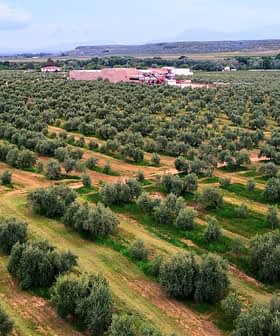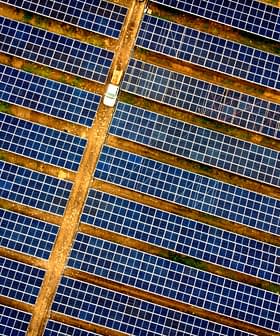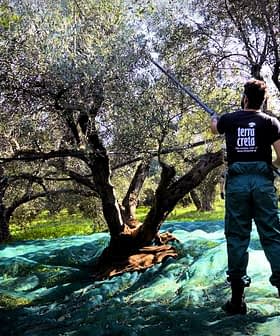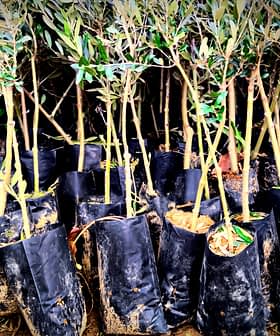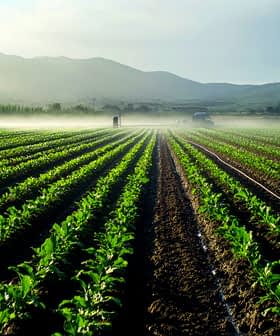Drought Expected to Hit Europe Again, Scientists Warn
Dry weather is expected to persist in much of Europe throughout the summer, especially in the central and Mediterranean regions.
 Abandoned old village of Aceredo, Galicia, Spain
Abandoned old village of Aceredo, Galicia, Spain Climate scientists have warned of potential drought in Europe this summer following below-average winter precipitation, with severe drought impacting olive oil-producing countries in the past year. Researchers predict another dry summer for Europe in 2023 due to ongoing water deficit exacerbated by rising temperatures, emphasizing the need for global efforts to conserve water resources and mitigate the effects of climate change.
After a winter of below-average precipitation, climate scientists have warned that drought might again beset Europe this summer.
In the summer of 2022, the continent’s driest of the past 500 years, consecutive and prolonged heatwaves and drought dominated southern and southwestern European, severely impacting crops.
Given that much of Europe experienced below-average precipitation levels during the recent winter, it is reasonable to assume that drought conditions will persist during the upcoming summer months.
Consequently, olive oil-producing countries, including Spain, Portugal, France and Italy, saw a significant reduction in their 2022/23 olive oil yields.
However, the drought’s effects are not limited to the Mediterranean basin: mild winter weather, which brought low amounts of rain and snow, has exacerbated Europe’s water deficit problem, with vast areas becoming drier than usual.
See Also:Farm to Fork Strategy Under Fire Ahead of European Elections in 2024“Honestly, all over central Europe, this issue, it’s a widespread problem,” said Carmelo Cammalleri of the Polytechnic University of Milan, referring to European water scarcity.
According to a study by the Graz University of Technology in Austria, Europe has been in a drought since 2018, with its water status characterized as “very precarious.”
Scientists have seriously questioned the ability of Europe’s water reservoirs to replenish before summer.
“Clearly, in some parts of Europe, the lack of precipitation and the current deficit is such that it won’t be easy for water levels to recover before the start of the summer,” said Andrea Toreti, a senior scientist at the European Drought Observatory.
“What is unusual is the recurrence of these [drought] events because we already experienced a severe to extreme drought a year ago and another one in 2018,” he added.
According to Burak Bulut, a French National Center for Scientific Research (CNRS) researcher, last summer’s drought had set in on Europe much earlier.
“We looked at water balance anomalies from December 2021 to August 2022,” Bulut told Olive Oil Times. “Based on both our research and observations from other sources, it is evident that the drought conditions experienced during the summer of 2022 actually began in the winter of 2021.”
Bulut noted that the dry period is continuing in Europe and much of the world, adding that any average precipitation should not be considered a return to a semblance of normality.
“As we are currently at the end of March and the drought conditions are still present, it is accurate to state that the dry period is ongoing,” he said. “In reality, it appears that we are experiencing a drought not only within Europe but in most parts of the globe.”
“It is important to note that even when precipitation levels are near the long-term average, the impacts of drought are becoming more evident due to rising temperatures and the resulting increase in evaporation and transpiration,” Bulut added.
Bulut predicts another dry summer for Europe, driven by higher-than-usual temperatures. He also identified an anticipated shift in the drought effects from the southwest to the southeast of the Mediterranean region.
“Given that much of Europe experienced below-average precipitation levels during the recent winter, it is reasonable to assume that drought conditions will persist during the upcoming summer months,” he said.
“Based on trend studies, it has been determined that we are currently experiencing a three-month period (March to May) of higher temperatures and lower precipitation levels, particularly in southeast Europe and the Mediterranean region,” Bulut added.
“As a result of these findings, it is anticipated that the summer season will be characterized by above-average temperatures and drier conditions in these regions,” he continued.
Bulut said the impacts of drought are expected to persist, even if spring rains manage to mitigate some of the water deficit in certain areas.
By comparing drought periods in Europe from 1836 to 2021, the researchers at CNRS have also identified the drought of 2022 as being partially anthropogenic.
“Climate change linked to human activities contributes to the occurrence of prolonged drought episodes like the one that affected Western Europe and the Mediterranean region in 2022,” the researchers wrote.
“The results underscore the importance of continuing efforts to reduce greenhouse gas emissions and mitigate the effects of climate change,” they added.
Meanwhile, António Guterres, the secretary-general of the United Nations, urged political leaders worldwide to intensify their efforts to preserve global water resources.
“All of humanity’s hopes for the future depend, in some way, on charting a new course to manage and conserve water sustainably,” Guterres said at the United Nations 2023 Water Conference held in New York last month, the first global water convention in almost 50 years.
“It needs to be at the center of the political agenda,” he concluded.
Share this article


